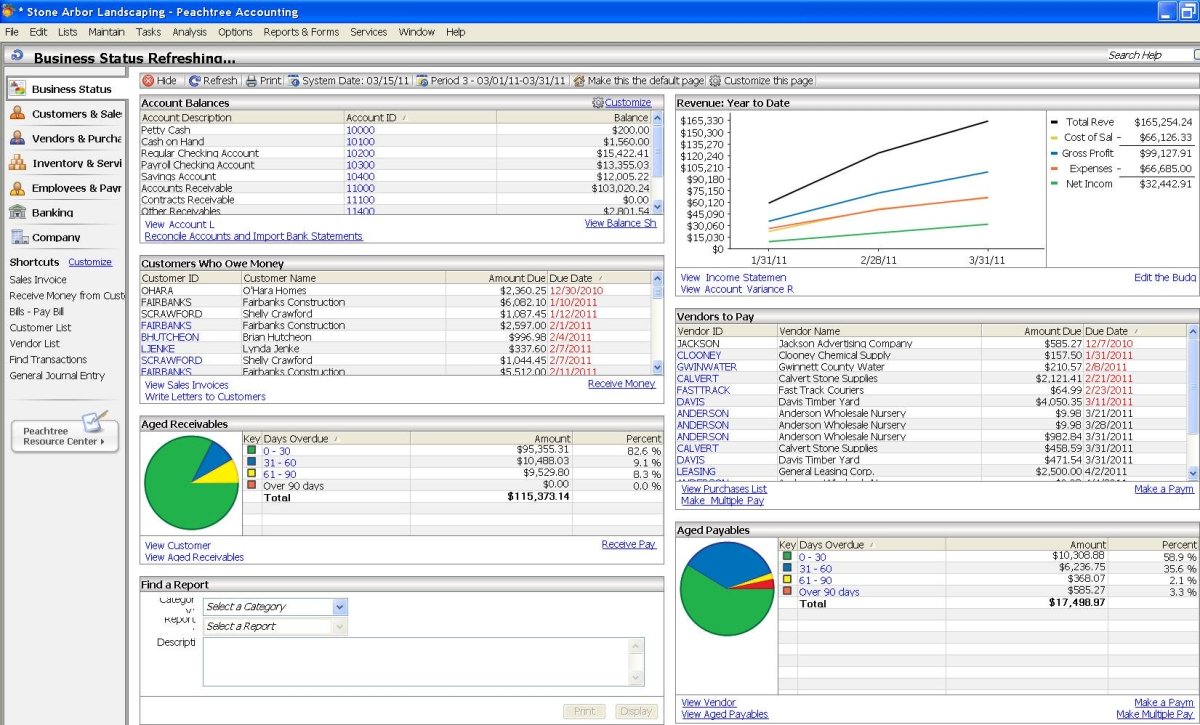10 Ways Small Business Owners Get in Trouble with the IRS
When you started your small business, you had every intention of doing things right. You got any licenses you needed. You opened a separate bank account. You got busy marketing your business and providing excellent customer service.
However, if you're anything like most small business owners, you may have overlooked some important financial issues - or maybe you didn't overlook them, but you didn't give them the attention they really needed. The result may have been that you ended up in some hot water with the Internal Revenue Service (IRS). You're not alone.
If you are just starting your small business, you would do well to learn from the mistakes others have made. Throughout this article, I have linked several IRS publications that may be helpful to you, but there are two that I highly recommend you review. The first is the IRS's Small Business and Self-Employed One-Stop Resource Center page. From that page you can access all the IRS information you need. The second IRS resource I recommend if you are very new to your business or thinking about starting a business is the IRS's Starting a Business page. It clearly explains all of your tax-related responsibilities. I especially like the Checklist for Starting a Business.
Before I outline the most common tax-related mistakes made by small business owners, please know that the comments I make here are no substitute for seeking professional advice from a certified accountant. Do yourself a favor and get professional advice to ensure your business affairs are in order before the IRS comes knocking.
Here are ten common ways new business owners get themselves in trouble with the IRS:
- Not keeping clear and separate business records from the beginning. Many small business owners start their new business as a hobby, so they don't keep records of their business expenditures until a few months later when they realize they are spending enough that they really want to get the tax deductions to which they are entitled. Others just get so busy doing the work of their business that they keep putting the record keeping on the back burner.
- Not keeping business and personal finances completely separate. Some people don't bother to get a second checking account. Others have the separate account, but they still co-mingle the money. It starts with a check here and there. Pretty soon, the business account is not really a business account. Now, it's ok to pay some personal expenses from the business account if you have to, but your records must be very clear. It's better to transfer the money from the business account to the personal one, and then pay your personal expenses from the personal account.
- Not saving enough money along the way to pay your personal income taxes. Remember, taxes are not withheld from your paycheck like they were when you were working as an employee. Most small businesses are pressed for cash, especially in the early years. It is very easy to tell yourself that you'll put away twice as much for taxes next month because you really need all your cash this month. The problem is that next month you'll need all your cash, too. Eventually, you have a tax bill of thousands of dollars that you can't pay. This is probably the biggest tax issue for new small business owners. It just creeps up on you. Start off right by making a practice to set aside 25%-30% of your net income every month for taxes. If you are not good at keeping your hands of money in your business bank account, open a separate account for your tax money (a money market account may be a good idea for you - you money stays available for you, and you can earn a good interest rate on your money while it's sitting there).
- Not making quarterly estimated income tax payments. If you expect to owe as little as $1,000 in taxes, you may be required to make quarterly estimated payments. IRS Publication 505 provides information about who must make estimated tax payments and how you calculate them. The reality is that making your estimated payments can help you avoid finding yourself at the end of the year in really big trouble.
- Not following the rules for paying employees and treating employees like independent contractors. Some new small business owners think that you can just write a check to people working for you and that's it. Unfortunately, the federal government and the state use you to collect taxes your employees owe. As an added bonus, they tack on additional taxes that you have to pay for your employees (those pesky "employer contributions"). There are very specific rules regarding who can be classified as an independent contractor and who is an employee. It's not what you call them that matters, but how they do their work (How independent are they? Do they have control over how they complete their work? Do they have any other clients?). If you incorrectly classify someone as an independent contractor, rather than an employee, and fail to pay employee-related taxes (and get caught), you will have to pay the back taxes plus interest plus penalty.
- Making employee tax deposits late - or not making them at all. The IRS gets really nasty about this. Why? Because the tax money you withheld from an employee's check is not your money. The minute your employee earned it, it was his money (or the IRS's). Even if you only have one employee and it's not a lot of money, make those deposits and make them on time. To make sure you follow all of the rules for withholding taxes and for paying employer's taxes, even if you only have one employee, you should familiarize yourself with the IRS's Employer's Tax Guide (Circular E).
- Ignoring notices and calls from the IRS. You may think this is not a common mistake, but it is. People are afraid of the IRS, especially if they owe money. They often think that they'll pull the money together and pay it before it's too late. The truth is that communicating with the IRS if you are in trouble is much better than not communicating. The IRS can get pretty nasty of they think you are trying to avoid them (can you say "tax evasion"?).
- Not getting advice from an accountant. Small business owners try to save every dollar. That can often mean that they don't want to spend the extra few hundred dollars for the advice and help of an accountant. Spending a few hundred now to make sure you're doing everything right can literally save you thousands of dollars later.
- Claiming many questionable deductions. One of the most commonly abused deductions that gets people in trouble is the Home Office Deduction. Learn the rules and use it properly. Don't get me wrong. I am all for claiming every deduction to which you are entitled. Just be careful to claim your deductions appropriately. Was that family trip to Santa Barbara really business related? If so, make sure you only claim the trip-related expenses that were truly business related. If you claim inappropriate deductions, you will pay for it dearly if you get caught through an audit (that means paying tax, interest, and penalty).
- Not keeping receipts and/or not annotating receipts. The IRS says that a credit card statement is not adequate proof of business expenses. They want receipts. (Note: My account disagrees and believes that we might win in an audit if the credit card statements are all annotated with the business purpose written next to each item, but he's also quick to tell me that we might not be successful in that case. The bottom line - keep your receipts.) Also, a restaurant receipt is not good enough. You need to annotate the receipt. That means you need to write on it - what was the business purpose? A record of mileage to a town 200 miles away is not good enough. What was the business-related purpose for that trip?
There is no need to be afraid of the IRS, but self-employed people do have to pay attention to IRS regulations that affect their business. The incredible freedom of owning your own business comes with some additional responsibilities.
For more advice on starting and running a small business, visit Your Small Business Guide.








